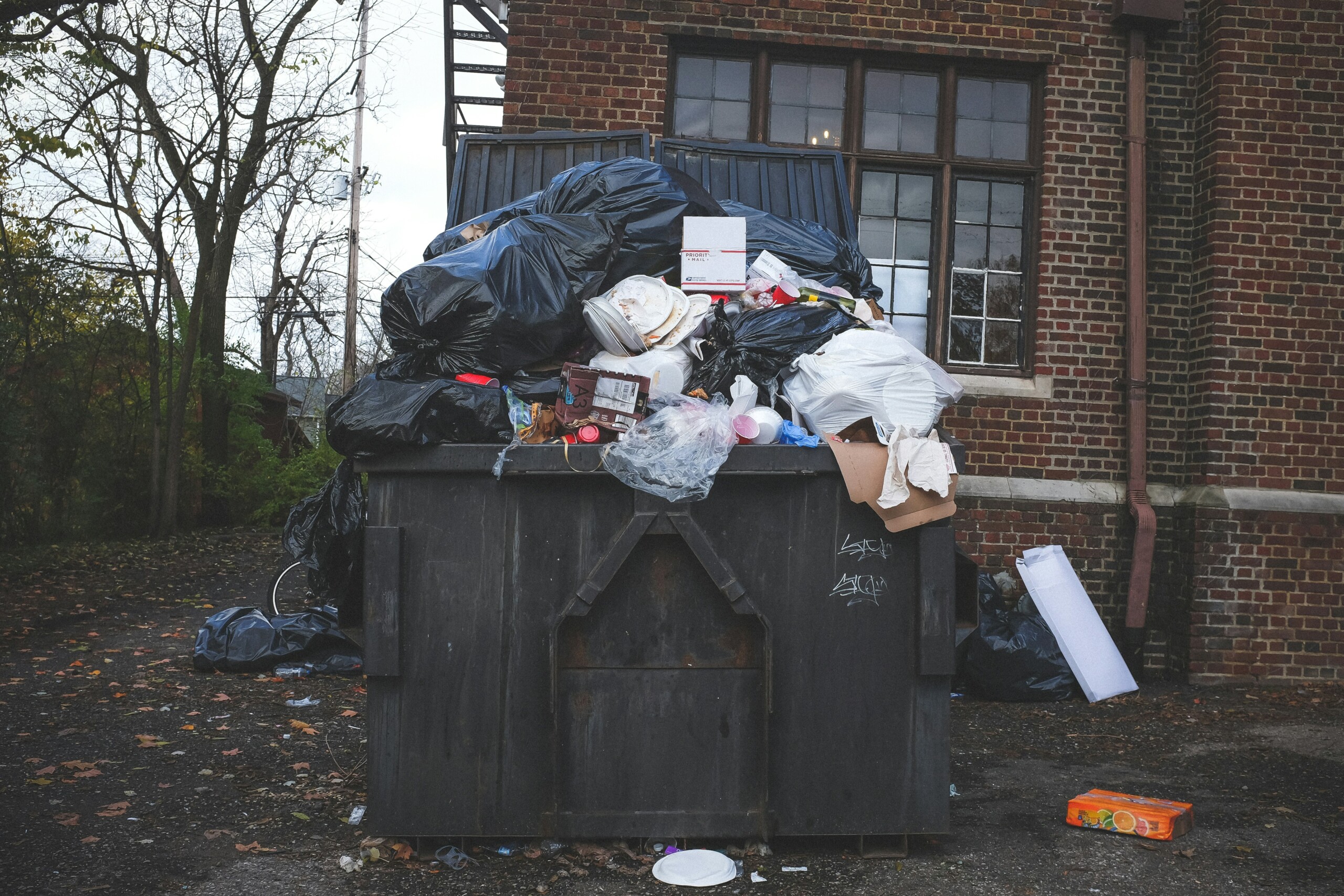Note: Presidential Address to the Christian Sociological Association and the Network of Christian Anthropologists at their Joint Conference at Covenant College, June, 2024
This past Christmas, while visiting relatives, most of our family—my spouse Joan, daughter Rose, and son Alec—took a train from Hammond, Indiana into Chicago. After an enjoyable day walking around Millennium Park, we headed back to the station to wait for the late afternoon train that would transport us back. The area leading to our boarding queue contained a number of coffee shops, small retail outlets, and some food court seating. After one disheveled man trudged by us, Alec, then 17, remarked, “That guy’s cologne sure is strong. He should dial it back a bit.” After a second or two it dawned on me that what our son was smelling was not cologne, but rather the unmistakable scent of stale urine and body odor wafting off of a homeless man.
At first this struck Joan and me as funny, but then it occurred to us that our son did not recognize the distinctive smell of urine infused with the dank odor of poverty. What does it mean when a young man with a sociologist father and guidance counselor mother fails to recognize the odors of homelessness? Perhaps we’ve been too entrenched in private Christian schools with their upward mobility and parking lots filled with late model SUV’s. Perhaps we’ve been living in a community fitted with olfactory gates. And, perhaps what Jesus calls us to do is to move toward, and deeply inhale, the odors that, to us, have an objectionable smell.
Our train station experience took place on a Saturday. The following day, the pre-Christmas sermon at my in-laws’ church, which was part of their series on “Senses of Christmas,” addressed smell. The minister speculated about the various scents present at the birth of Christ, exploring how our romanticized view of the manger scene leaves out a few smells like manure and various other odors found on farms and lingering on weary travelers with only one set of clothes. Undoubtedly, the birth of Christ was not accented by the scents of cloves, cinnamon, and “chestnuts roasting on an open fire” we identify with Christmas.
What sort of smells would emanate from shepherds keeping watch over their flocks by night? The minister helpfully offered several observations I’d not previously considered. Do we turn up our noses at the smells found in a barn or a manger? Jesus, the King of Kings, was born into the smells we wrinkle our noses at—“our” smells. If I’m remembering correctly, he remarked that Jesus—from incarnation through to his death—received the full stench of our humanity. Counter-intuitively, as is often the case in scripture, there’s “good news” in the “bad smells” of the first Christmas. The Word “made flesh” at Jesus’ birth has olfactory overtones—flesh smells.
My sociological imagination was kindled. Sociologists and anthropologists, with their interest in stratification and revealing and addressing injustice, function as contemporary prophets who hunt for things that smell, and who envision and work toward a world that smells a lot better than the one we presently inhabit, where the smells of people in different strata mix together, where the one with many changes of clothes gives to the one with only one set. Poverty smells bad.1 Injustice smells bad. Racism smells bad. Gender-based oppression smells bad. Greed smells bad. And so on. In what follows, I invite you to kindle your socio-anthropological imaginations and join me in considering a few things that have a certain smell about them.
Things that Smell Bad
Nursing homes frequently have a faintly unpleasant smell about them. I have long marveled at my oldest daughter’s ability to run through a nursing home when she was a child of 8 or 9, touching people, getting drooled on, and neither noticing nor caring about the faint, yet distinctive smell of urine that hung about. Though I have spent little time in them, I imagine prisons have similar odors that many would find objectionable. The smells of nursing homes and prisons are “away” from most of our day-to-day lives. Escaping the smell is part of the pressure we feel to leave such places.
“Bad” smells accompany myriad forms of human dysfunction. Alcoholism has a smell about it. Understaffed and underfunded orphanages have a smell that lingers about them. Homelessness has an unpleasant smell. Even familiar colloquialisms— “That _______________ really stinks”— compare things we find objectionable to olfactory offense.
Several years ago, our host for the Christian Sociological Association conference at Eastern University in Philadelphia arranged for us to visit the “Lest We Forget” Slavery Museum,2 which has left an indelible imprint on me. The elderly Black couple who both owned the museum and guided us through it, spoke of how traffickers packed their human cargo into the holds of ships for their six-week journeys, shackling them to one another, at first positioning them on their backs, and then later, seated, when they learned that such an arrangement would produce lower mortality rates. During their terrible journey, they lay in their own excrement and vomit, and if someone died, they would simply be shackled to a dead person for the remainder of the trip. The stench must have been unbearable, especially for those who could not escape it.
During graduate school I authored a paper on “Mother Teresa as a Charismatic Leader.” I came away from my study with profound respect for this diminutive woman who consistently moved toward things that smell. I read accounts of Saint Teresa cleaning maggots from the wounds of the lowest caste people. She touched the desperately poor, and undoubtedly had their smell indelibly marked on her person. I imagine that Jesus had a similar smell about his person. After all, he hung about with people who smelled bad.
In “The Conceptual Practices of Power: A Feminist Sociology of Knowledge,” standpoint sociologist Dorothy Smith examines how the social location of women puts them at significant disadvantage as scientists in an androcentric world. Under the sub-heading “Women Sociologists and the Contradiction between Sociology and Experience,” she writes about the bifurcation of [women’s] consciousness:
… experienced as women move between these two modes [professional/managerial settings and domestic/home settings] with a working consciousness active in both. …Thus, the relationship between ourselves as practicing sociologists and ourselves as working women is always there for us as a practical matter, an ordinary, unremarked, yet pervasive aspect of our experience of the world. The bifurcation of consciousness becomes for us a daily chasm to be crossed, on the one side of which is this special conceptual activity of thought, research, teaching, and administration, and on the other the world of localized activities oriented toward particular others, keeping things clean, managing somehow the house and household and the children—a world in which the particularities of persons in their full organic immediacy (feeding, cleaning up the vomit, changing the diapers) are inescapable. Even if this isn’t something that currently preoccupies us, as it no longer preoccupies me, our present is given shape by a past that was thus.3
Smith is challenging the male-dominated symbolic order, and drawing attention to how women’s consciousness is bifurcated or “divided” in such an order. Her examples center on professional women scientists who contend with gender norms that permit their male colleagues to live and work generally unencumbered by what some call “women’s work”—the “second shift” of changing diapers and cleaning up after children. Women in the professional classes, she points out, regularly traverse the chasm between the realm of things that smell (home/childcare) and the realm of things that don’t (the academy/sanitized laboratory). And, in professional contexts, it is frequently women’s backstage immersion in the smells of home and childcare that give their male colleagues an edge over them in their shared workspace. Professional men, more than professional women, can physically transcend the organic, human smells of home and life (changing diapers and cleaning toilets), and give themselves more single-mindedly to the abstract “conceptual activity of thought” in their workplaces. Gendered space has a smell about it with both functional and symbolic dimensions.
Dead bodies smell bad. Perhaps we lose something with our Western practice of quickly removing the deceased from their families, of rationalizing and sanitizing the smell and presence of death. Perhaps we would gain something from inhaling the smell of death more deeply. Jesus wasn’t deterred by the women’s warning that, should he enter Lazarus’ tomb, the dead Lazarus would smell bad (John 11). Rather, Jesus moved resolutely toward, and into, the stench, whereupon something remarkable took place.
Wealthy countries frequently export their objectionable smells to poorer countries or to their own landfills. The US exported 920 million pounds of scrap plastic in 20234 and puts 140 million tons of waste into landfills annually.5 Landfills are located away from most middle-class residences, but if you visit the dump, you’ll see that plenty of people live on its borders. Like the toxic stench of landfills, war also smells bad. The gaseous smells of war—mustard, chlorine, and phosgene—can maim and kill.
When I was a graduate student, I attended a lecture on “Dust” given by symbolic interactionist Gary Alan Fine. The abstract of Fine’s article, “Dust: A Study in Sociological Miniaturism,” states, “Dust, by virtue of its ‘smallness,’ provides a window through which we can explore social structural issues using microsociological analysis. Specifically, we examine how dust and techniques for its control are linked to issues of gender, work, political economy, and nation.”6 In his lecture, Fine commented on how we are stratified by our proximity to dust, and explained how the wealthy export their dust (garbage, toxic materials, etc.) to poorer neighborhoods. Dust and bad smells are of a piece, I believe. How Christians should deal with this reality is covered tomorrow in Part 2.
Footnotes
- In The Road to Wigan Pier, George Orwell famously argues that “… the real secret of class distinctions in the West… is summed up in four frightful words… The lower classes smell.” He continues, “It may not greatly matter if the average middle-class person is brought up to believe that the working classes are ignorant, lazy, drunken, boorish, and dishonest; it is when he is brought up to believe that they are dirty that the harm is done… Very early in life you acquired the idea that there was something subtly repulsive about a working-class body; you would not get nearer to it than you could help.” George Orwell, The Road to Wigan Pier (Harcourt Brace, 1958), 127-128.
- Lest We Forget Slavery Museum. https://lwfsm.com/
- Farganis, James. “Chapter Twelve: Feminist Theory.” In Readings in Social Theory: The Classic Tradition to Post-Modernism, ed. James Farganis (Boston: McGraw-Hill), , 369-394(2004), 375.
- Alves, Bruna. 2024. “Scrap Plastic Exports from the U.S. 2015-2023.” Statista. Accessed March 17,2025.https://www.statista.com/statistics/1097245/us-scrap-plastic-exports/.
- Juliana McDonald, “Curbing America’s Trash Production: Statistics and Solutions.”Dumpsters.com. Accessed March 17, 2025. https://www.dumpsters.com/blog/us-trash-production.
- Fine, Gary Alan, and Tim Hallett. “Dust: A Study in Sociological Miniaturism.” The Sociological Quarterly 44, no. 1 (2003): 1-15.























